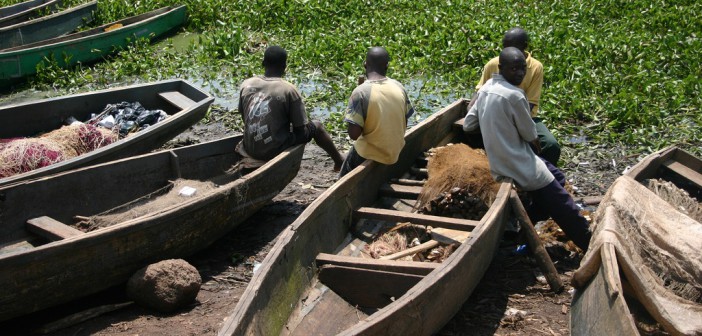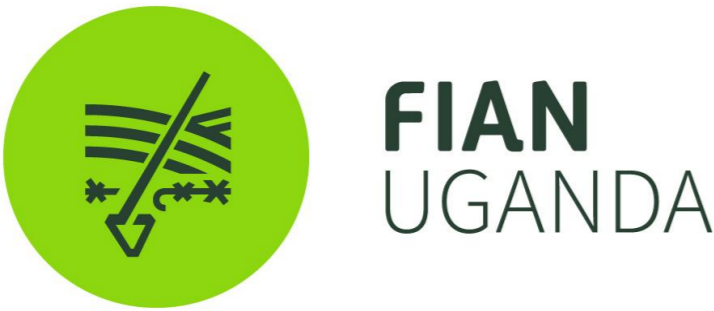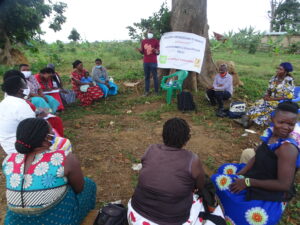No products in the cart.

Universal Periodic Review – Uganda (2021) Human Rights Violations in the Context of Kaweri Coffee Plantation Ltd. in Mubende, and Fisherfolk in Uganda
Submission by FIAN Uganda
- This information is submitted by FIAN Uganda. FIAN Uganda is a national section of FIAN International. FIAN is an international human rights organization for the right to food and nutrition and has a UN consultative status with the ECOSOC.[1]
Uganda and the Right to Food and nutrition
- Uganda ratified the International Covenant on Economic, Social and Cultural Rights (ICESCR) on 21 January 1987 (Art.11). It also ratified all other treaties relevant to the right to food and nutrition, including the International Covenant on Civil and Political Rights – 21 June 1995 (Art. 6-1), the Convention on the Rights of the Child – 17 August 1990 (Arts. 24 and 27) and the Convention on the Elimination of All Forms of Discrimination against Women – 22 July 1985 (Arts.12 and 14). This means that under its international human rights obligations, the Government of Uganda has the duty to guarantee the enjoyment of the right to food and nutrition, and other connected rights in Uganda.
Summary of the situation in the Kaweri Coffee Plantation case in Mubende district[2]
- In August 2001, approximately 4000 inhabitants of four villages: Kitemba, Luwunga, Kijunga and Kiryamakobe, were violently evicted from their land of 2524 ha by the Ugandan army, in order to lease it to Kaweri Coffee Plantation Ltd., a 100% subsidiary of the Neumann Kaffee Gruppe (NKG) based in
Hamburg/Germany. Until today, the evictees have neither been compensated for the loss of their property nor acquired the restitution of their land. They live in dire situation since the eviction and have been subjected to violation of human rights including: the right to food, right to water, right to adequate housing, right to health, right to education, right to enjoyment of cultural life, right to timely get justice and legal remedy.
- During the eviction, the evictees lost their properties including their houses, which were destroyed by the soldiers. In the early stages after the eviction, the health conditions of the evictees have been extremely deteriorating as there have been an increase of illnesses (malaria and diarrhea), and deaths of injuries from the evictions, starvation, malnourishment in children and undernourishment in adults. The number of children going to school and secondary school has dropped down (30%) because: on one hand, children were unhealthy to attend the school and on the other hand, parents did not have financial means to pay for their children in the secondary school particularly3. Also, the school of the children has become the headquarter of Kaweri coffee plantation and the children lost the whole school year directly after the eviction before a new school became available for them. Due to lack of accommodations, parents have been obliged to share a bed with their adult children and this is a taboo in the Buganda tradition. In addition, the evictees have lost the graveyards of their ancestors which constitute the violation of the enjoyment of cultural life. It is uncertain whether the evictees will get proper justice with adequate remedy since the case is still pending in the court until today – almost 20 years later.
- Following the eviction the right to food and nutrition of the evictees has been dramatically violated as their land has been given to Kaweri Coffee Plantation/NKG without compensation thus lacking the financial means to buy food. Women, children, disabled and older persons suffer most hunger and malnutrition since husbands and young people have been forced into migration and left the community to search for a work. In addition, women have reported increased domestic violence since the forced eviction, because they can hardly fulfil their husband’s expectations such as preparing demanded meals due to lack of necessary resources like special types of food (i.e. bananas, maize, potatoes, rice and beans), water or firewood. When women go to work in the Kaweri Coffee Plantation, their husbands fear that they will engage with other men and this situation has led to distrustful relationships that resulted into domestic violence against women. Furthermore, women have reported the increase in teenage pregnancies as their daughters offer sex to men in exchange of food or money due to hunger.
- The evictees’ plight has been exacerbated by the recent COVID-19 pandemic due to the effects of the unprecedented lockdown measures. With little or no land on which to carry out farming activities, the meagre incomes that these evictees used to obtain from alternative sources of livelihood like casual labor were also wiped out. Many have been rendered unemployed or underemployed, thus making it difficult for them to have economic means of providing food for themselves and their dependents.
Summary of the situation of Fisherfolk in Uganda
- Natural water bodies cover approximately 42 000 km2, or about 18% of Uganda’s total area, and fisheries play a very important role as a foundation of subsistence and commercial livelihood.Fishing communities in Uganda are of varied ethnic backgrounds and reside in more than 34 districts of the 135 Districts in Uganda where fishing water bodies are located. It is estimated that about 700,000 people earn their livelihood from the fisheries sector, majority of whom are subsistence fishermen, while women are involved in fish drying (sardines), traditional processing of fish, petty trading as well as cooking for household consumption. Fishing communities live in precarious conditions with inadequate access to housing, health facilities, and other infrastructure. Poverty is rampant among these fishing communities because fishing alone is not enough to sustain their livelihood. Hence, poverty is the main cause that pushes small-scale fishers to use undersized nets and catch undersized fish as a coping mechanism to sustain their livelihood, which is considered unlawful and illegal by the government of Uganda.
- In an effort to combat illegal fishing, the President of Uganda, Mr. Yoweri Kaguta Museveni issued a directive in November 2017, introducing the army to handle persons involved in unlawful fishing activities through various measures such as arrest, detention and confiscation of equipment or catches. Since then, on a daily basis, the army patrols all fishing communities in the country and a lot of atrocities have been witnessed and reported, including beatings, burning of fishing equipment and houses, and in some cases death of fishermen on the Lake Victoria. A local media house, Daily Monitor, for instance documented the killings of several young fishers from Mpuunge sub-county in Mukono district by the army in 2020[3]. This news outlet has further made several publications on this issue of the Ugandan army brutality against fishing community members5. There has been a lot of public outcry against the excessive force being used by the army in the name of regulating fishing, but with barely any response to alleviate the situation of the local communities. The arbitrary brutality meted out by the armed forces has forced many small-scale fishers to abandon their livelihood, thus jeopardizing their right to adequate food and nutrition. Those lucky enough to access a piece of farmland have since resorted to agriculture, but for the vast majority of small-scale fishers who do not have alternative source of livelihood, have been pushed to extreme vulnerability.
Struggle of the Evictees in the Kaweri Coffee Plantation case in Mubende district
- In 2002 the evictees brought the case to the Ugandan High Court. Although there were forth and back in the court procedures, in 2019 the court ordered a mediation process towards an out of court settlement. This process is still ongoing. While some of the evictees agreed with the mediation process some others would like to have a full trial and are seeking compensation for the damage caused by the eviction and monetary compensation to buy a new land somewhere in Uganda and be able to sustain their living. In general, all evictees have lost the hope in the Ugandan justice.
After almost 20 years of legal battle, the evictees, especially those who opted out of court settlement, do not have any assurance of being compensated at some point. From their testimonies, a section of evictees accepted the out of court settlement because they are poor and have suffered so long. Therefore, they are willing to take whatever can be given to them so that they can survive. On the other hand, those who opted for the full trial although they are also poor and have suffered the same consequences of the brutal eviction, feel that justice has to be done and those responsible must be held accountable.
- On 08 July 2015 in the concluding observations of the CESCR[4] to Uganda with regard to the forced evictions, it is stated that:
“§ 30: The Committee is concerned about repeated cases of forced evictions of communities as well as lack of compensation to those communities or provision of alternative housing. The Committee is particularly concerned about the case of Mubende District whose inhabitants were evicted from their homes in 2001 in the context of the Kaweri Coffee plantation and about the fact that so far the legal redress they could obtain did not include restitution of land rights.”
Therefore, the CESCR urges the State of Uganda to:
“- Refrain from forcibly evicting individuals and expropriating land, including in the context of development projects. It recalls that in cases where eviction or relocation is considered to be justified, it should be carried out in strict compliance with the relevant provisions of international human rights law;
– Take immediate measures to ensure that the rights of the Mubende community are restored as well as of all other forcibly evicted communities; – Consider developing a legal framework on forced evictions, which includes provisions on effective and meaningful consultation, adequate legal remedies, and compensation…”
Struggle of fisherfolk in Uganda
- Community members for instance in Mukono district have attested to having approached the Resident District Commissioner to seek support, however they did not get any lasting solutions. Fisherfolk can hardly dare to talk to the armed soldiers, thus appearing helpless. FIAN Uganda, in partnership with journalists from NTV, has documented some of the experiences and testimonies of families that have lost their loved ones through the army operations. The documentary titled ‘PANORAMA: Fishermen Accuse Army of Torture in Lake Operations’ can be viewed at
In December 2019, following a public outcry in media, the parliament issued a directive aiming at halting the army operations on fishing on all water bodies in the country, due to mistreatment of fishing communities[5]. This directive however is ignored and until now as the army still patrols and controls all fishing activities in all fishing communities in the country, atrocities are still taking place against smallscale fishers.
The Status Quo of the evictees in the Kaweri Coffee Plantation case in Mubende district
- The evictees in the Kaweri case are still waiting for justice after almost 20 years of legal battle. Even the Ugandan government did not act on the CESCR recommendations and urge the court to speed-up judicial process for the sake of providing justice to the evictees.
- Although some of the evictees have been recently evicted for the second time[6], land grabbing and forced evictions have become rampant in Uganda. For instance, recently there were largescale evictions at the instigation of the Uganda government in which over 35000 people were evicted from 20 villages in Kiryandongo district to pave way for the agrarian projects of 3 different investors; Agilis Partners, Great Seasons SMC Ltd and Kiryandongo Sugar Ltd[7]. Whereas the government claims that the land in question was “empty public land”, the evictees attest that this was the land they have long held under customary ownership which is one of the constitutionally recognized forms of tenure. As a result, properties and livelihoods have been destroyed in the course of these evictions, and the victims are now faced with rising food insecurity.
The Status Quo of fisherfolk in Uganda
- Recently, the Ugandan parliament has been debating the Fisheries and Aquatic Bill, 2020. The Bill was drafted without open consultations and there was a complete lack of effective participation of fishing communities. If enacted, the Bill will seek to achieve the objective of deterring illegal fishing in the country through the use of the army and legalization of the use of force against small-scale fishing communities, impacting on their right to food and nutrition, among others. Instead of putting efforts to create an enabling environment that can help to uplift the lives of small-scale fishers, the proposed Bill will legalize the involvement of the army in regulating illegal fishing activities. Among others, the Bill provides for the training of the Fisheries Unit in para-military skills by the Uganda Peoples Defense Forces (UPDF). Aside from close cooperation between the ministers of agriculture and defense on measures to combat illegal fishing, the Bill has provisions that authorizes the army to use force in regulating fishing activities, while failing to define the circumstances under which the use of force may be warranted. For the last three years, the army has exerted excessive use of force and violence has become the order of the day. The Bill, thus will not only legitimize army violence, but it will also exacerbate it and threaten several human rights of small-scale fishers and their families, such as the right to life and the right to food and nutrition.
Demands of the Evictees in the Kaweri Coffee Plantation case in Mubende district
- The evictees in the Kaweri case have the following demands:
- Adequate compensation for the damage caused by the forced eviction and which would allow the evictees to acquire a new land to sustain their living.
- Holding accountable those responsible of the forced eviction.
- Halting activities of the Kaweri Coffee Plantation until the final decision of the court is provided. Demands of fisherfolk in Uganda
- Fisherfolk demand that:
- The government security operatives cease and desist from all acts of torture or cruel, degrading and inhumane treatment perpetrated against persons accused of involvement in unlawful fishing activities.
- Persons suspected of involvement in unlawful fishing activities be promptly presented to the courts of law for trial rather than being subject to arbitrary punishment by enforcement officials.
- The government should investigate and hold to account those responsible in the army for human rights violations including killings, torture or/and inhuman treatments.
Recommendations
- During the UPR, the following recommendations should be given to the State of Uganda:
For the evictees in the Kaweri Coffee Plantation case in Mubende district:
- To ensure that the court case is expeditiously disposed of and evictees are fully compensated.
- To ensure that those responsible for the forced eviction are held accountable.
- To halt the activities of the Kaweri Coffee Plantation until the final judgement of the court is provided.
- In general, to protect those affected by land grabbing and forced eviction in Uganda and provide justice to them.
For fisherfolk in Uganda:
- Review and revise the proposed Aquaculture and Fisheries Bill 2020 so it will respect, protect and fulfil the right to food and nutrition and other related human rights that are already guaranteed in the Constitution of Uganda.[8] The Bill should promote the sustainable management of the fisheries resources through the provision of an institutional framework that will sensitize and empower small-scale fishers as the basis for the realization of the right to food and nutrition of small-scale fishers.
- Ensure that the Bill is re-drafted in an inclusive and participatory manner, with wider consultations including especially fishing communities. Therefore, the government should engage members of parliament from lake regions to conduct wide consultations in their constituencies on alternative provisions to the sustainable management of fisheries in their communities.
- Take proactive measures to ensure that fishing communities’ activities are not hampered by the violence of the Ugandan army. Hence, provisions of the Bill that legitimize the use of force as a default mode of operation should be amended.
- Investigate and hold to account those responsible in the army for human rights violations including killings, torture or/and inhuman treatmentment.



